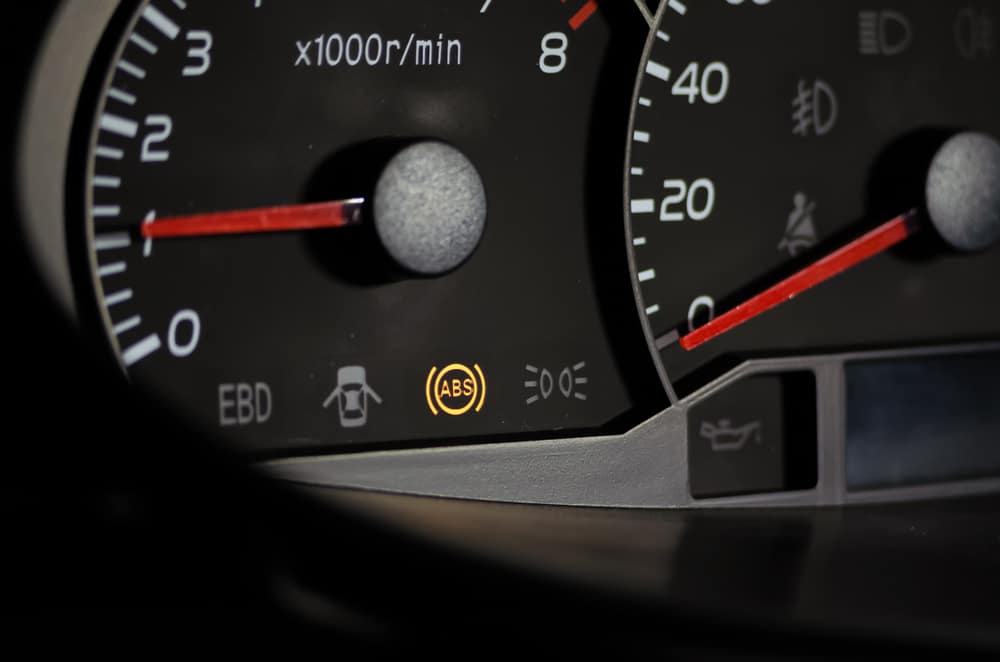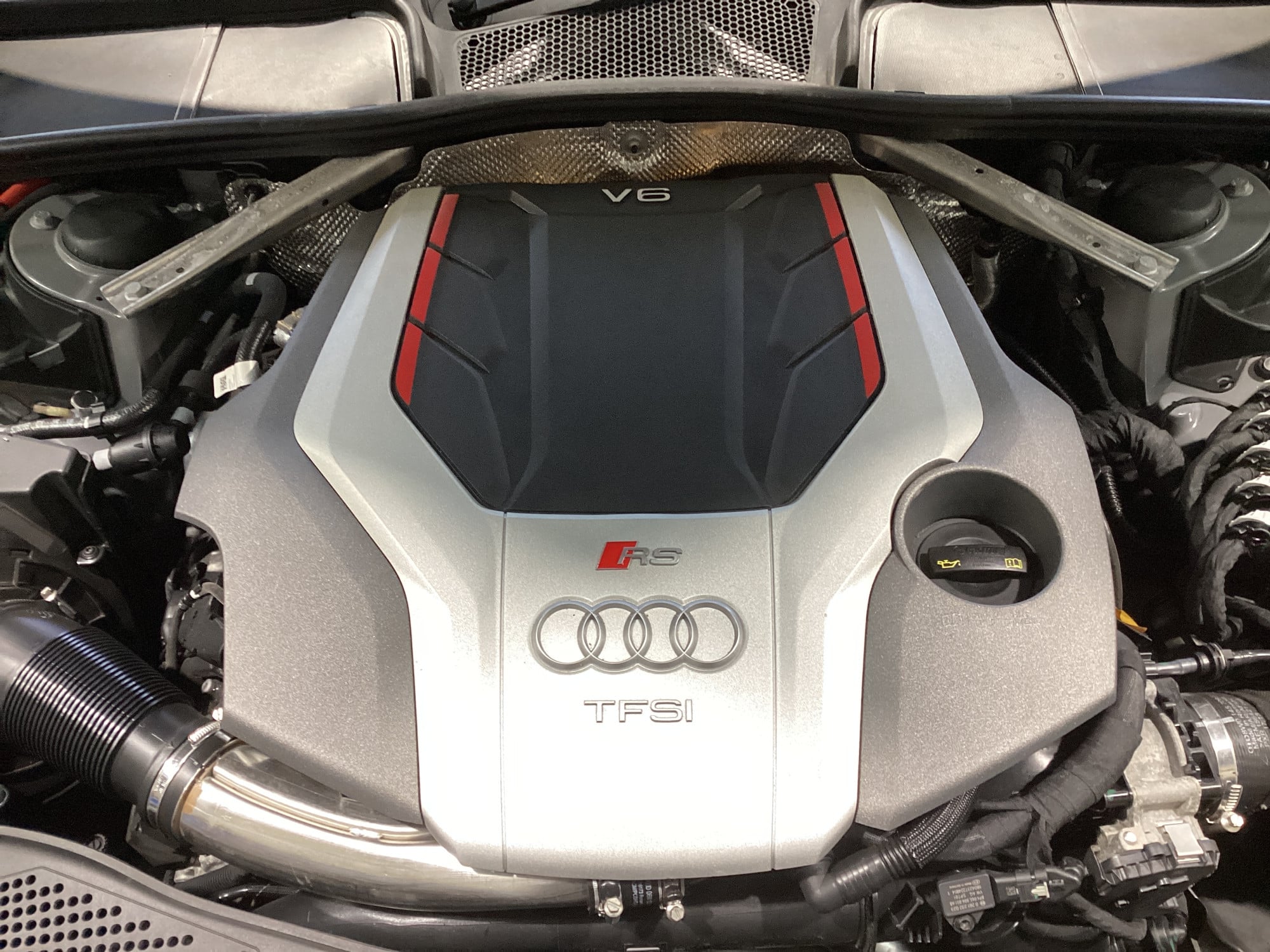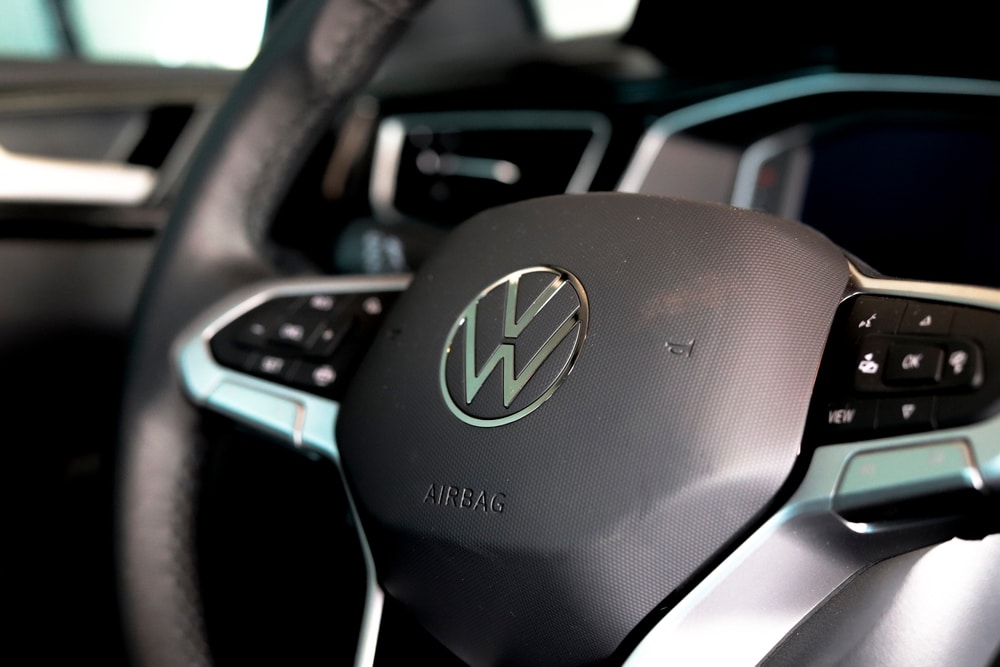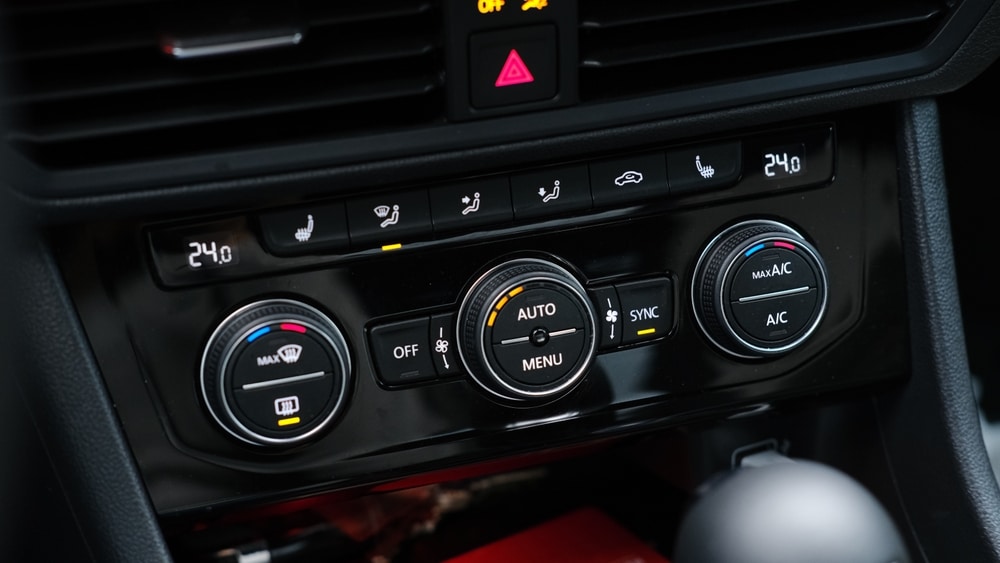Anti-Lock Brakes
You’re driving through Milton Keynes when a car ahead of you brakes without warning. You react fast and press the pedal hard, but instead of a clean stop, the wheels seize, the tyres shriek, and the vehicle skids off-line. In that split second, your ability to steer vanishes. And as you scramble to regain control, a thought hits you: “I should’ve had that ABS light checked.” It had been there for days, maybe weeks. Now you’re finding out why it matters.
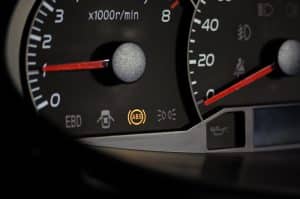
The anti-lock brakes system (ABS) is designed to keep your tyres gripping the road during heavy braking. It doesn’t always make you stop faster, but it gives you the chance to stay in control when you’re forced to stop suddenly.
At Quality Car Service in Milton Keynes, we’ve helped drivers identify and resolve ABS faults before they lead to dangerous situations. ABS combines sensors, hydraulics and software to react in milliseconds. But if even one part fails, that protection can vanish.
In this blog, we’ll explain how ABS works, what the warning signs look like, and when to get it checked.
Let’s dive in.
What ABS Prevents… and Why That Matters
ABS, or anti-lock braking system, is designed to stop your wheels from locking during sudden or heavy braking. It doesn’t guarantee a quicker stop. Its main job is to help you keep control of the vehicle when grip starts to disappear.
Without ABS, hitting the brakes hard can cause one or more wheels to lock up. Once that happens, the tyres lose traction. With no grip, steering becomes impossible. That’s a real issue if you’re trying to avoid a vehicle, cyclist or barrier. ABS helps prevent this by automatically adjusting the brake pressure at each wheel, keeping them rotating just enough to maintain contact with the road.
It’s one of the few systems in your car that can step in during a crisis and give you a fighting chance to steer clear of danger.
How ABS Steps In the Second Grip Starts to Go
ABS doesn’t wait for you to lose control. It’s already working behind the scenes. As you drive, it constantly tracks how fast each wheel is turning. If one starts to slow too suddenly during braking, the system reacts immediately.
Each wheel has a sensor monitoring its rotation speed. That data is sent to the ABS control unit, which compares the figures from all four wheels in real time. If one is about to lock, the system intervenes. It adjusts the brake pressure on that individual wheel using solenoid valves within the ABS modulator. Once grip is restored, pressure is reapplied. This cycle repeats rapidly, many times per second.
You’ll often feel this as a pulsing sensation through the brake pedal. That’s a sign ABS is working as intended, keeping the wheels turning just enough to maintain grip.
But if something in the system fails — such as a damaged sensor or slow valve — ABS may not activate at all. When that happens, the warning light usually comes on. If it stays on, call Quality Car Service in Milton Keynes on 01908 376555. We’ll carry out a full diagnostic process to get to the root of the problem.
ABS System: Location and Component Function
The anti-lock braking system is made up of several key parts, each located in a different area of your vehicle. Together, they monitor wheel speed, regulate pressure, and respond instantly when a wheel starts to lock.
Wheel speed sensors – These are fitted close to each wheel hub, usually right next to the brake discs. They detect how quickly each wheel is turning and send continuous data to the ABS control unit.
ABS control unit (ECU) – Found in the engine bay, this is the brain of the system. It processes input from the sensors and decides when and how to adjust brake pressure.
ABS modulator or hydraulic pump – Also under the bonnet, this part controls the actual pressure changes. It contains valves and a high-speed pump that can release or reapply brake force in milliseconds.
Brake valves and lines – These components channel brake fluid to each wheel. The solenoid valves inside the modulator open and close to fine-tune fluid pressure during braking.
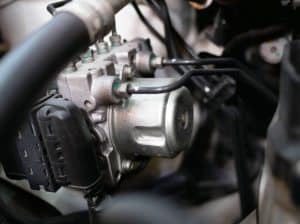
At Quality Car Service in Milton Keynes, we’re trained to test and repair every element of the ABS system. If your warning light has come on or braking feels unpredictable, call 01908 376555. We’ll carry out a complete diagnosis evaluation and get everything working as it should. You can also check out our blogs on Brake Pads, Brake Discs, and Braking Systems to learn how each part plays its role in stopping safely.
The Extra Safety Tech That Needs ABS to Work
ABS isn’t just there to protect you during hard braking. It also supports several other safety systems in your car. These features all rely on data from the ABS sensors to detect grip loss and react quickly when control is at risk.
Here’s how each one works:
Electronic Brakeforce Distribution (EBD) – This balances braking force between the front and rear wheels. It helps keep the rear from locking up, especially when the car is heavily loaded.
Traction Control System (TCS) – When a wheel spins on a slippery surface, TCS applies brake pressure to that wheel and reduces engine power until it regains traction.
Electronic Stability Programme (ESP) – If your car starts to skid or veer off course, ESP uses selective braking to correct the vehicle’s path and prevent understeer or oversteer.
These systems can’t do their job properly without accurate input from the ABS system. A single fault, whether it’s a sensor, modulator or control unit, can affect all three.
At Quality Car Service in Milton Keynes, we understand how these systems link together. If your ABS light is showing or your car feels unstable under braking, give us a call on 01908 376555. We’ll run a full diagnostic evaluation and make sure your safety features are working as they should.
What Can Interfere with ABS When You Need It Most
ABS is designed to support you in emergencies, but like any safety system, it relies on good conditions and fully working parts. If either is compromised, the system may not respond when you expect it to.
Surface conditions are a big factor. On ice, snow, or loose gravel, ABS may struggle to maintain traction. It can still help you steer, but it can’t overcome the limits of tyre grip. That’s why you should always drive more cautiously in bad weather, even if your ABS is functioning correctly.
Internal faults can also affect performance. A damaged speed sensor, stuck solenoid valve, or issue within the ABS modulator can all prevent the system from activating. Often, this is what causes the ABS light to stay on while driving.
At Quality Car Service in Milton Keynes, we don’t leave your safety to chance. If your brakes feel different or your warning light is showing, we’ll carry out a detailed diagnostic evaluation and put things right before it becomes a risk.
How to Spot an ABS Problem Before It’s Too Late
Your ABS doesn’t work constantly, but when it’s needed, it has to respond immediately. That’s why knowing the signs of failure is essential. You may not notice an issue during everyday driving, but when you hit the brakes hard, the system’s absence can be critical.
Watch for the following:
The ABS light stays on
It’s normal for the ABS light to appear briefly when starting the car. But if it remains on while driving, the system has shut itself off due to a fault. Standard braking will still work, but ABS won’t. Book in with Quality Car Service in Milton Keynes on 01908 376555 so we can run a full diagnosis to find exactly where the problem lies.
No pulsing when braking heavily
If you slam the brakes and the pedal feels smooth, and the wheels lock, ABS may not be engaging. A lack of pedal pulsing is a common sign that the system isn’t active.
Multiple warning lights
ABS faults can sometimes trigger the general brake warning light as well. If both lights are on, it points to a more serious problem affecting your overall braking system.
Noticed any of these signs? Get it checked straight away. Our team will find the fault and restore your braking safety without delay.
Why an ABS Warning Light Isn’t Something to Shrug Off
It’s easy to overlook a dashboard light when your car seems to drive fine. But if the ABS light stays on, it’s telling you that one of your most important safety systems is no longer working.
When ABS is inactive, you still have your normal brakes. But what you lose is the system’s ability to control pressure during a sudden stop. Without that support, the wheels can lock, and your ability to steer may disappear at the worst possible time. On Milton Keynes roads, that could mean skidding through a junction or being unable to avoid an obstacle in poor weather.
There’s also the MOT to consider. A car will automatically fail its MOT if the ABS light is on. And if the brake warning light shows as well, that’s an additional fail point and a potential safety issue.
At Quality Car Service, we’ve seen how quickly a small warning can lead to something more serious. If your ABS light is on, don’t delay. Call 01908 376555 and we’ll carry out a full evaluation to get your braking safety back on track.
Book with Quality Car Service — Stay in Control, Whatever the Conditions
ABS isn’t something you notice until it’s not there. But when it fails, the effects are immediate and potentially dangerous. Whether it’s a warning light on your dashboard or a braking issue you can’t quite pin down, it’s always worth getting checked.
At Quality Car Service in Milton Keynes, we carry out thorough diagnostic evaluations to uncover ABS faults and get your system working again. Our technicians are trained in ABS braking systems, and we’ll give you clear, honest advice on what needs fixing and why.
Here’s what you get with us:
- Expert evaluation and straightforward advice
- 12-month parts and labour guarantee
- Free courtesy car to keep you mobile
- A {{average-rating}} star Google rating from {{review-count}} satisfied customers
Call 01908 376555 to book your ABS check today and drive with confidence, whatever the conditions.
